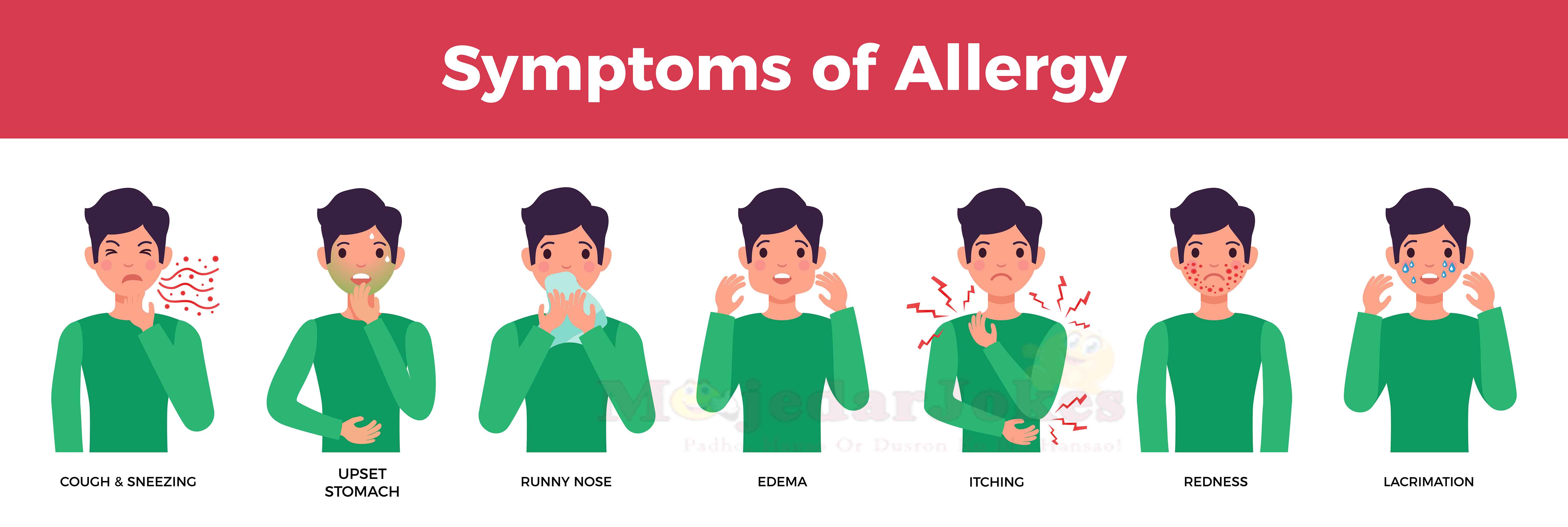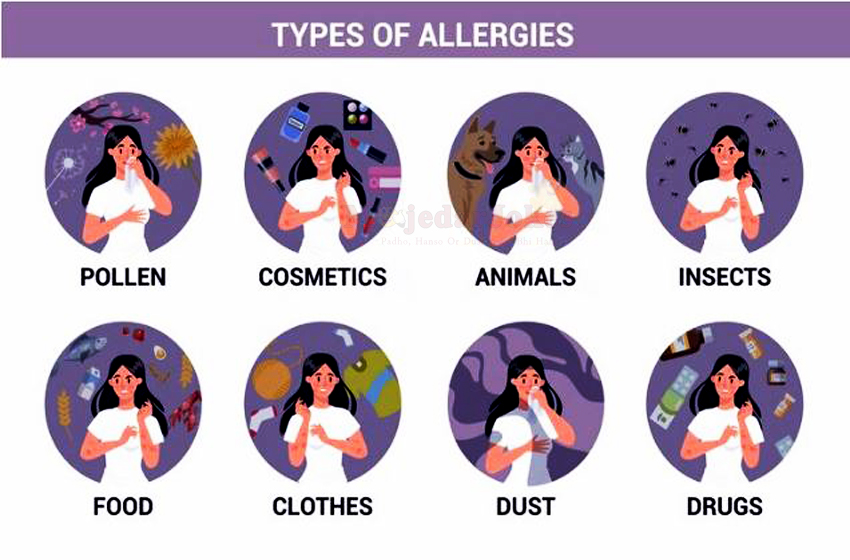Relieve of nasal congestion due to allergies it is a process that aims at decreasing inflammation and enhancing airflow.
Nasal congestion due to allergies is a painful and uncomfortable experience. It is often causing breathing difficulties and disturbed sleep. Luckily, there are many efficient methods to ease nasal congestion caused by allergies and reduce the associated symptoms. From saline nasal rinses to steam inhalation to medications available over the counter such as nasal decongestants and antihistamines There are a variety of choices that are available. Also, lifestyle changes such as avoiding allergens keeping indoor air quality in check and staying hydrated help in the management of nasal congestion due to allergies. With these tips you can experience relief from the nasal congestion. They be aware of the different types that cause allergies and experience improved breathing and general comfort.
What is Allergies
Allergies are reactions of the immune system to substances that are normally safe for the majority of people. These substances, also known as allergens, may trigger allergic reactions in people who are sensitive. Common allergens include pollen dust mites and pet dander certain food items insects, insect stings and medication.
If an allergic person encounters an allergen the immune system recognizes it as harmful and creates antibodies known as immunoglobulin E (IgE) to combat the allergen. When the next time a person is exposed to the same allergen the body releases histamine as well as other chemicals, causing the symptoms of an allergic reaction.
Symptoms of Allergies

Allergic reactions vary in severity and affect different areas within the human body. Common symptoms of allergies include:
- Nasal symptoms : The most common symptoms are a stuffy or runny nose, sneezing and itching or nose congestion (allergic rhinitis).
- Respiratory symptoms : Coughing wheezing, a shortness of breath, the tightness of your chest (allergic asthma).
- Skin symptoms : These include red, itchy or swollen skin itching, hives (urticaria) as well as eczema or dermatitis.
- Eye symptoms : Eye Symptoms: Itchy, red eyes, and watery (allergic conjunctivitis).
- Gastrointestinal Signs : (nausea stomach pain, vomiting diarrhea as well as swelling or swollen tongue, lips and throat (food allergy).
In extreme cases allergic reactions may cause anaphylaxis, which is which is a life-threatening emergency that manifests as rapid decrease in blood pressure. trouble breathing or loss of conscious. Anaphylaxis is a medical emergency that requires immediate attention.
Allergies can manifest at any time and can alter over time. Although some people can overcome allergies, others can be prone to developing new allergic reactions later on in the course of their lives. Allergies can have a significant impact on the our quality of life. However, numerous treatments are available to treat symptoms and decrease allergic reactions. These include medication, allergy shots (immunotherapy) as well as lifestyle changes.
Click here to read Cosentyx Side Effects : Does Cosentyx Cause Hair Loss
How to Relieve Nasal Congestion Due to Allergies
To relieve nasal congestion resulting from allergies requires a mix of strategies that aim to reduce inflammation and enhancing airflow. Here are some helpful tips to ease nasal congestion:
- Nasal Saline Rinse : Use the saline nasal spray or neti pots to cleanse the nasal passageways. This assists in flushing out irritations and thin mucus and reduce congestion.
- Stay hydrated : Drink plenty of fluids so that you can keep the nasal passages clean. This can help reduce mucus, and also reduce congestion.
- Steam inhalation : Inhale steam from the pot of boiling water, or shower in a hot bath to to loosen the mucus and ease congestion.
- Nasal Decongestant Sprays : The over-the-counter nasal decongestant sprays may provide a temporary relief by shrinking the swollen nasal passages. But they should just be applied for a couple of days because prolonged use may increase congestion (rebound the congestion).
- Antihistamines : oral antihistamines aid in reducing symptoms of allergy such as nasal congestion by reducing Histamine's effects which is released in allergic reactions.
- Nasal Corticosteroids : In the form of prescription or over-the counter nasal corticosteroid sprays may help reduce inflammation in nasal passages, easing congestion in the course of time. They're usually more effective if they are regularly used.
- Avoid allergens : It is important to determine the triggers to can aggravate your allergies, for example dust mites, pollen, pet dander, and mold.
- Keep the indoor Air Clean : Utilize air purifiers equipped with HEPA filters to lower indoor allergens. Keep windows shut during peak pollen months and look into the covers that block allergens from mattresses and pillows.
- Get Your Head Elevated : Sleeping by elevating your head can reduce nasal congestion, by preventing mucus from accumulating inside the nasal passages.
- Warm Compress : Warm Compress: Applying the warm compress on your face can ease the pressure and sinuses and makes breathing easier.
If your nasal congestion continues even after trying these methods or you are experiencing extreme symptoms, it's essential to speak with a medical expert. They will be able to provide further assessment and suggest appropriate treatments, such as allergy shots or prescription medication (immunotherapy) should it be necessary.
What are the different types of allergies?

Allergies are classified in a variety of types based on the origin of the allergen and also the body's reaction. The most common kinds of allergies are:
- seasonal allergies (Hay Fever) : Also known as allergic rhinitis. Seasonal allergies manifest as a result of pollens from grasses, trees and weeds. The symptoms typically get worse during certain times when the appropriate flowers are blooming.
- Allergic Reactions Perennial : Contrary to allergies that are seasonal perennial allergies can happen all the time and are often caused by indoor allergens, such as dust mites, pets dander mold spores and cockroach droppings.
- Food Allergies : Food allergies result from reactions of the immune system to specific substances found in certain food items. The most frequent food allergens are eggs, shellfish, nuts dairy, wheat, soy and fish. The symptoms vary from mild itching inflammation to severe.
- drug Allergies : Certain individuals might develop an allergic reaction to certain drugs, such as antibiotics (such as penicillin) and nonsteroidal anti-inflammatory medications (NSAIDs) chemotherapy medications as well as vaccines.
- Insect Sting Allergies : Allergies triggered by insects stings, including those of wasps, bees, hornets, and fire ants, can result in small-scale swelling and itching and redness. In extreme instances, they can cause anaphylaxis.
- latex allergy : Allergy to Latex an immune system reaction to the proteins in natural latex made of rubber. It can trigger irritation to skin (contact dermatitis) as well as respiratory manifestations, and in rare instances anaphylaxis. Latex is often used in medical gloves, balloons, condoms and other items.
- Contact Allergies (Contact Dermatitis) : Contact allergies are triggered whenever the skin comes in contact with allergens like metals (e.g. nickel,,) cosmetics, fragrances, perfumes as well as plants (e.g. poison ivy, for example) as well as chemicals (e.g. latex, for instance). This kind of allergy usually causes itching, redness and irritation of the skin near the point of contact.
These are only some examples of the most commonly encountered kinds of allergies. It's important to keep in mind that some people may suffer from multiple allergies at the same time and the extent of allergic reactions may vary greatly from individual to individual. If you suspect that you may have allergies, it's important to seek out an medical specialist to determine the correct diagnosis and treatment.
Which foods should we avoid in case of allergies?
1. Nuts : Peanuts and tree nuts like almonds, walnuts, cashews, etc.
2 .Shellfish : Including shrimp, crab, lobster, etc.
3. Fish : Such as salmon, tuna, halibut, etc.
4. Eggs : Both egg whites and yolks can cause allergies.
5. Milk : Cow's milk and products derived from it.
6. Soy : Soybeans and soy products.
7. Wheat : Found in many foods like bread, pasta, cereal, etc.
8. Sesame : Often found in bread, sushi, and other foods.

